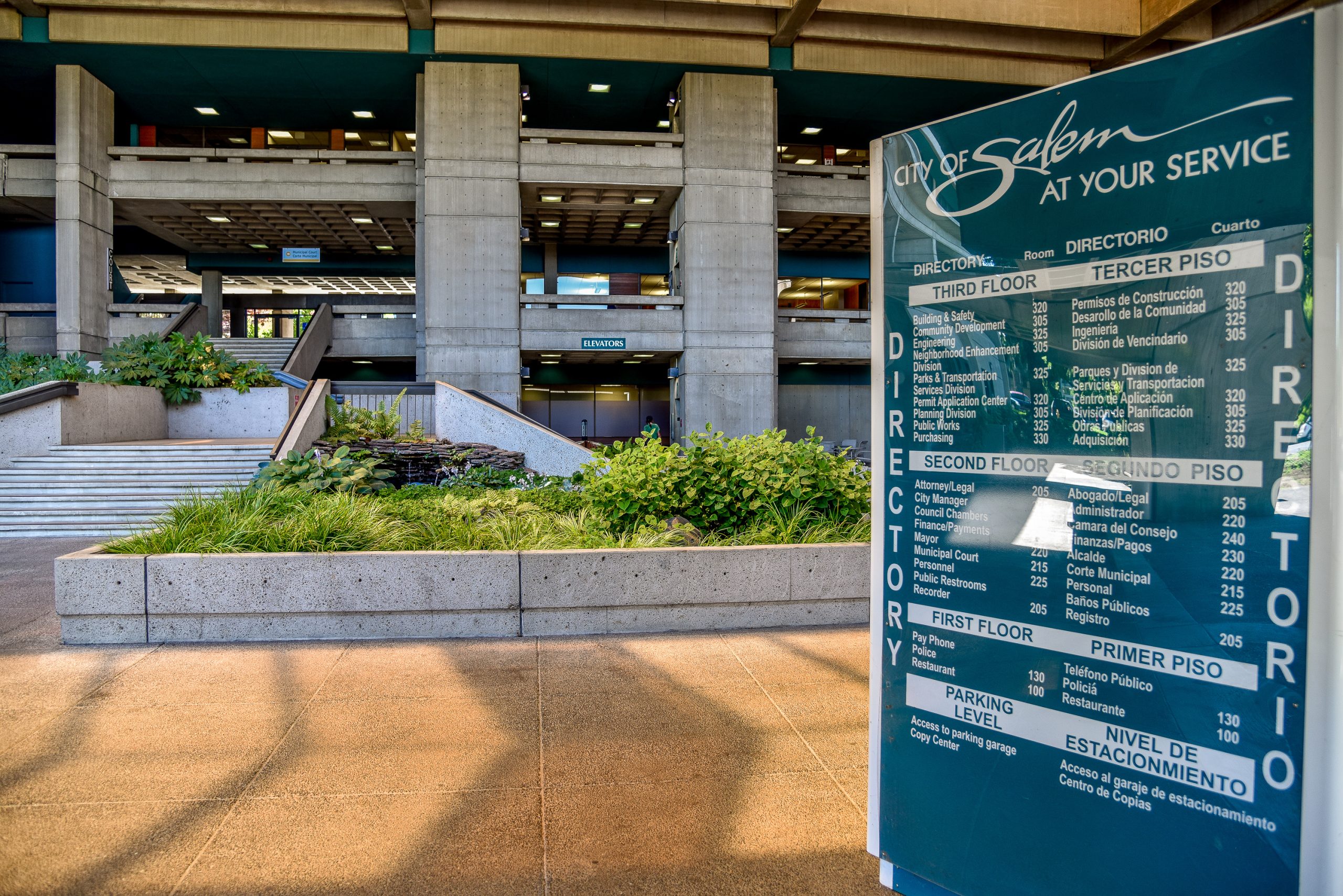City commission derailed over potential conflicts of interest


Potential conflicts of interest have destabilized a city commission tasked with earmarking millions of federal dollars for local projects.
The Community Services and Housing Commission has for years been a keeper of grant dollars from the federal Department of Housing and Urban Development, also known as HUD, and where affordable housing projects and social initiatives go for federal funding.
But the federal agency recently told the city of Salem it worries the commission could have “potential conflicts of interest” as the commission members often hail from organizations that apply for funding.
In a 10-page letter received by the city Oct. 29, HUD official Jason Triplett wrote that the makeup of the commission could discourage winning organizations from working hard with the grant dollars and could discourage other organizations from even applying.
“Other potential (applicants) could possibly feel discouraged from applying for (grants) given the perceived advantage enjoyed by” organizations that also employ members of the commission, the letter said.
The letter — officially called a “monitoring report” — notes that, since 2012, organizations represented by four commissioners have received a combined $5.3 million in federal grant dollars.
Salem has received close to $2 million from HUD every year, on average, over the past five years. Recent grantees include the Cornerstone Apartments and Shelly’s House of Salem.
(DISCLOSURE: The Cornerstone Apartments were built in part by Mountain West Investment Corp, whose owner, Larry Tokarski, is a co-founder of Salem Reporter)
The letter does not say the city or the commission has done anything wrong, nor that the city is in danger of losing funds.
Kristin Retherford, director of Urban Development Department, which presides over the commission, said she was “very confident” there has been no wrongdoing by commission members.
“They have always announced a conflict and recused themselves,” Retherford said.
Lee Jones, a spokesman for HUD, said governments that encounter these issues usually come back into compliance quickly.
“If they address the concerns, then all is well,” Jones said. “They will continue to receive funds. … We have no interest in cutting grantees off from funding.”
The commission recommends funding for projects based on applications submitted at the start of every year. Applications are split by the type of grant — a city general fund grant, a community development block grant or a HOME grant — to be scored by commissioners. The Salem City Council ultimately decides if a project gets funding.
Retherford said commissioners never scored their own applications nor applications that competed against his or her own. Yet HUD still worried about whether board members could act without influence, she said.
“I think their concern is that if I represent an organization and I have a seat on the board, even though I’m not scoring my application category, my colleagues around the table may end up scoring me either more favorably or more harshly because of my position,” Retherford said.
Commissioners are appointed by the city council’s Boards and Commissions Appointment Committee. Mayor Chuck Bennett and Councilors Tom Andersen, Steve McCoid and Brad Nanke serve on that committee.
Still, the letter throws the commission and the city’s plans for federal dollars into flux.
The nine-member commission was enshrined in Salem Revised Code to represent a cross-section of the public and city’s nonprofit community. For example, it calls for at least one commissioner from the Salem Housing Advisory Committee and two from nonprofit social service organizations.
“We believe that there’s value in having people from these different social services serving in an advisory capacity to the city,” Retherford said.
But HUD’s letter now directs the city to change. The letter says the city should not let organizations apply if they employ a commissioner.
It specifically asks the city to “require each member of the commission certify that, during his/her respective term and for at least one year from the day in which the term expire, the business and/or non-profit organization that a member works for or manages shall not apply for (the federal grants).”
Four commissioners resigned in the past week: Jayne Downing, executive director for the Center for Hope and Safety; LaDonna Smith, community outreach coordinator for United Way of the Mid-Willamette Valley; Kimberly Lemman, executive director of St. Francis Shelter; and Adam Kohler, a regional manager for CenturyLink.
Sarah Owens, a retired attorney, also serves on the commission as well as the Salem Housing Advisory Committee.
Kohler said he did not resign due to perceived conflicts. He said he resigned simply because he was spread too thin with other obligations. Rhonda Wolf of United Way said LaDonna Smith also did not resign due to potential conflicts of interest.
In Downing’s resignation letter, she noted she served on the commission and its predecessor for nearly 20 years and reiterated the commission’s integrity and purpose in helping fund social services.
“Each time the issue of a conflict of interest has been raised, commission members and city staff were assured by the attorneys on staff that as long as social service providers were not making funding decisions regarding their own grant, and declared a potential conflict of interest, their service was appropriate and desired on the commission,” Downing wrote.
The city itself has not yet made any changes. Retherford said it responded to HUD asking for more clarification, and whether it would be enough to simply remove the scoring duties from the commission. Her hope is to preserve the input given by nonprofit stakeholders.
“If that federal allocation piece is taken out of their job description, does (HUD) still see a conflict of interest?” Retherford said. “What kind of advisory capacity would be OK? There’s a few different options as to how this can all move forward.”
Meanwhile, meetings for the Community Services and Housing Commission have been cancelled in November and December. Retherford said the commission will not meet again until city staff takes the issue to the Boards and Commissions Appointment Committee.
That committee has no meeting scheduled.
With the next round of grants expected to start in January, Retherford said it’s likely city staff may take over scoring applications.
Have a tip? Contact reporter Troy Brynelson at 503-575-9930, [email protected] or @TroyWB.



